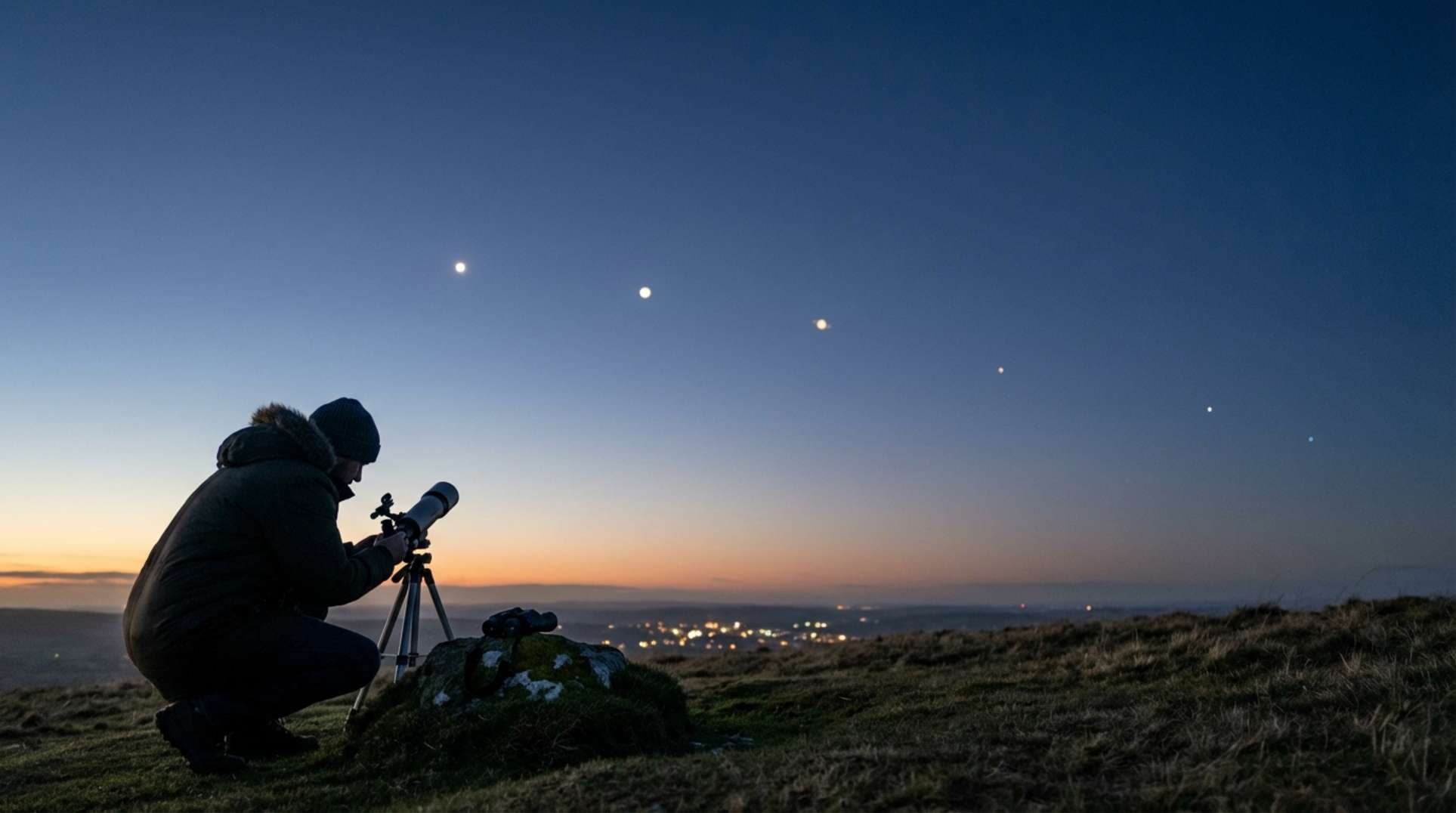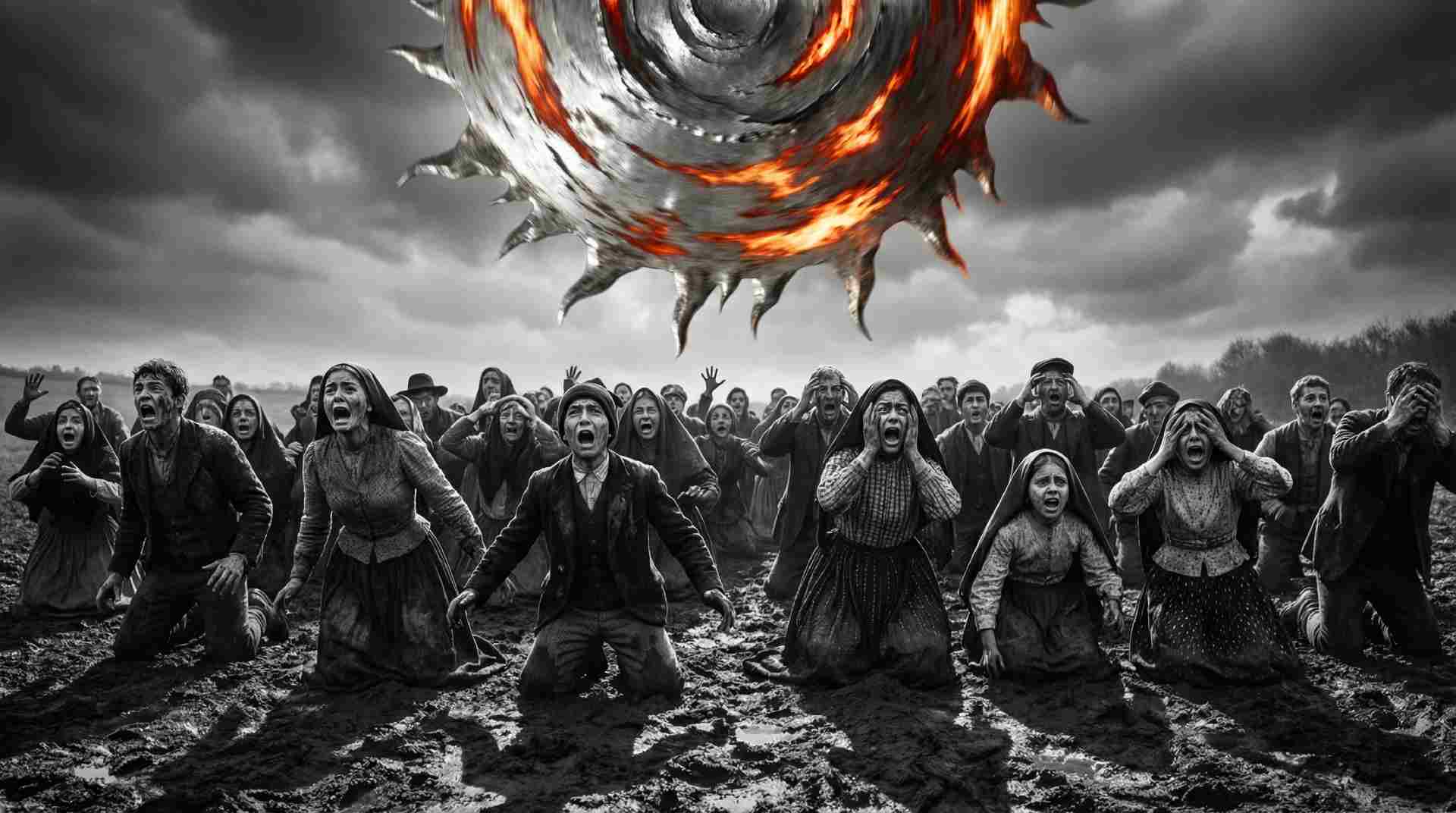Time travel has always sparked curiosity and wonder, leading to countless theories and stories about its possibilities. The idea of time loops, where events repeat in a cycle, has captivated our imagination and inspired many conspiracy theories. In this article, we will explore the reasons behind our fascination with time travel conspiracies and what they reveal about our society.
Key Takeaways
- Time travel conspiracies often stem from myths and stories passed down through generations.
- Movies and books play a big role in shaping our views on time travel and its possibilities.
- Historical events, like the Philadelphia Experiment, have fueled conspiracy theories about time travel.
- Scientific concepts like quantum physics raise questions about the feasibility of time travel.
- Time travel conspiracies reflect our desire to understand time and our place in it.
The Enigma of Time Travel Conspiracies

The Origins of Time Travel Myths
The concept of time travel has fascinated humanity for centuries, weaving its way through folklore and ancient tales. Many cultures have their own stories about time manipulation, often linked to gods or mystical beings. These myths serve as a foundation for our modern understanding of time travel, suggesting that the desire to transcend time is deeply rooted in our psyche.
Famous Time Travel Conspiracy Theories
Throughout history, various conspiracy theories have emerged, claiming that time travel is not just a fantasy. Some of the most notable include:
- The Philadelphia Experiment: Allegedly, a naval ship was made invisible and transported through time.
- John Titor: A self-proclaimed time traveler from the year 2036 who shared cryptic messages online.
- The Montauk Project: Rumored experiments involving time travel and mind control conducted by the U.S. government.
The Psychology Behind Time Travel Fascination
Why are we so captivated by the idea of time travel? Several psychological factors contribute to this intrigue:
- Escape from Reality: Time travel offers a way to escape the mundane aspects of life.
- Desire for Control: The ability to change past mistakes is a powerful allure.
- Curiosity about the Future: Many people are drawn to the unknown possibilities that lie ahead.
The allure of time travel is not just about the mechanics; it taps into our deepest fears and desires, making it a mysterious and compelling subject.
In conclusion, the enigma of time travel conspiracies reveals a complex interplay of myth, psychology, and cultural narratives. As we delve deeper into these theories, we uncover not only the unexplained but also the very essence of what it means to be human.
The Science Fiction Influence on Time Travel Beliefs

How Movies Shape Our Perception of Time Travel
Movies have a powerful way of shaping our understanding of time travel. From classics like "Back to the Future" to modern hits like "Tenet," these films create vivid images of what time travel could look like. They often blend science with imagination, making the impossible seem possible. Here are some key points about how movies influence our beliefs:
- Visual storytelling makes complex ideas easier to grasp.
- Characters often face moral dilemmas that resonate with viewers.
- The portrayal of time travel can spark curiosity and debate about its feasibility.
The Role of Literature in Time Travel Conspiracies
Literature has long explored the concept of time travel, weaving intricate tales that challenge our understanding of reality. Books like "The Time Machine" by H.G. Wells have laid the groundwork for modern time travel narratives. Here are some notable aspects:
- Exploration of alternate realities and their consequences.
- Characters often grapple with the ethics of changing the past.
- Literature invites readers to ponder the nature of time itself.
Television’s Impact on Time Loop Narratives
Television shows have also played a significant role in popularizing time travel concepts, particularly time loops. Series like "Groundhog Day" and "Russian Doll" have captivated audiences with their unique takes on repeating time. Here’s how they impact our beliefs:
- Repetition highlights the importance of choices and their outcomes.
- Viewers become invested in characters’ journeys to break free from loops.
- These narratives often reflect deeper philosophical questions about fate and free will.
The allure of time travel in science fiction is not just about the mechanics; it’s about the human experience and our desire to understand the mysteries of time itself.
In conclusion, the influence of science fiction on our beliefs about time travel is profound. It shapes our perceptions, ignites our imaginations, and invites us to explore the mysteries of time in ways that are both entertaining and thought-provoking.
Historical Events and Time Travel Theories

Ancient Civilizations and Time Travel Myths
The idea of time travel isn’t just a modern concept; it has roots in ancient civilizations. Many cultures have myths that suggest the ability to traverse time. These stories often reflect a deep fascination with the past and the future. For instance, the ancient Egyptians believed in a cyclical nature of time, where events could repeat themselves.
World War II and the Philadelphia Experiment
One of the most intriguing tales from history is the Philadelphia Experiment, which allegedly involved a naval ship becoming invisible and teleporting. This event has sparked numerous conspiracy theories about time travel and military experiments. Some believe that the crew experienced time loops, reliving moments of their journey.
The Mandela Effect: A Modern Time Travel Theory
The Mandela Effect refers to a phenomenon where a large group of people remembers an event differently than how it occurred. This has led to speculation that alternate realities or time travel could be at play. Many theorists suggest that these discrepancies are evidence of time travelers altering the past, creating a ripple effect in our collective memory.
In summary, historical events often intertwine with time travel theories, creating a tapestry of mystery and intrigue that continues to captivate our imagination.
| Event | Description | Time Travel Connection |
|---|---|---|
| Ancient Myths | Stories of time travel in various cultures | Reflects fascination with time |
| Philadelphia Experiment | Alleged military experiment involving invisibility | Speculated time loops |
| Mandela Effect | Collective false memories | Suggests alternate realities |
The Technology Behind Time Travel Speculations
Quantum Physics and Time Travel Possibilities
The realm of quantum physics opens doors to the unimaginable, where time may not be as linear as we perceive. Scientists speculate that time could be manipulated, allowing for travel to different eras. This idea is not just a fantasy; it’s a serious area of research. Some theories suggest that particles can exist in multiple states at once, hinting at the possibility of time travel. Could we really bend time?
The Role of CERN in Time Travel Theories
CERN, the European Organization for Nuclear Research, is often at the center of time travel discussions. With its Large Hadron Collider, scientists are smashing particles together at incredible speeds. Some believe that this could create tiny black holes or wormholes, potentially allowing for time travel. The mystery of CERN deepens as researchers explore the fabric of the universe, raising questions about what lies beyond our current understanding.
Time Machines: Fact or Fiction?
The concept of time machines has fascinated humanity for ages. From H.G. Wells’ classic novel to modern-day theories, the idea persists. Here are some notable concepts:
- Wormholes: Theoretical passages through space-time that could connect distant points.
- Tachyons: Hypothetical particles that travel faster than light, possibly allowing time travel.
- Time Dilation: A phenomenon where time moves slower for objects moving at high speeds, as described by Einstein’s theory of relativity.
The quest for time travel is not just about technology; it’s about understanding the very nature of time itself. What if we could unlock its secrets?
In conclusion, while time travel remains a speculative concept, the intersection of science and imagination continues to fuel our fascination with the possibilities that lie ahead. The journey into the unknown beckons us to explore further, challenging our perceptions of reality and time itself.
The Cultural Impact of Time Travel Conspiracies

Time Travel in Popular Culture
The concept of time travel has woven itself into the fabric of our culture, appearing in countless movies, books, and TV shows. From classics like Back to the Future to modern series like Dark, these stories captivate our imagination and spark discussions about the nature of time itself. They often blur the lines between reality and fiction, leading many to ponder the possibility of time travel in their own lives.
The Influence of Time Travel on Modern Science
Time travel theories have not only inspired fiction but have also influenced scientific discussions. Concepts from quantum physics and relativity often find their way into popular narratives, making complex scientific ideas more accessible to the public. This interplay between science and fiction encourages a deeper interest in scientific exploration and understanding.
How Time Travel Conspiracies Shape Public Perception
Time travel conspiracies often reflect our societal fears and hopes. They can serve as a lens through which we examine our past and future. For instance, the Mandela Effect, where large groups of people remember events differently, raises questions about collective memory and reality. This phenomenon can lead to a sense of unease, as people grapple with the idea that their memories may not be as reliable as they once thought.
In summary, the cultural impact of time travel conspiracies is profound, influencing everything from entertainment to scientific inquiry. As we continue to explore these themes, we may find that our fascination with time travel reveals more about ourselves than we realize.
The Ethical Dilemmas of Time Travel
Moral Implications of Altering the Past
Time travel raises deep moral questions. If one could change a tragic event, should they? Consider the following:
- Consequences: Changing the past could lead to unforeseen outcomes.
- Responsibility: Who is accountable for the changes made?
- Rights: Do we have the right to alter someone else’s history?
The Paradox of Time Travel: Can We Change History?
The idea of changing history is fraught with paradoxes. If a time traveler prevents a significant event, they might erase their own existence. This leads to:
- Causality: Every action has a reaction, complicating timelines.
- Self-Consistency: Events must remain consistent to avoid contradictions.
- Alternate Realities: Could changes create new timelines?
The Responsibility of Time Travelers
With great power comes great responsibility. Time travelers must consider:
- Ethical Guidelines: Should there be rules governing time travel?
- Impact on Society: How would changes affect the world?
- Personal Consequences: What happens to the traveler after altering events?
The weight of time travel is not just in the journey, but in the choices made along the way. Could advanced civilizations use time travel to rewrite history? This question lingers, hinting at the profound implications of our fascination with time loops and the potential consequences of meddling with time itself.
Real-Life Cases That Fuel Time Travel Conspiracies
The Mystery of John Titor: A Time Traveler from 2036
In the early 2000s, a user named John Titor appeared on internet forums claiming to be a time traveler from the year 2036. His stories captivated many, detailing a future filled with chaos and war. Titor’s predictions about technology and societal changes sparked intense discussions about the possibility of time travel. His claims, while intriguing, remain unverified, leaving many to wonder if he was a hoax or a genuine traveler from the future.
Project Pegasus: Government Time Travel Experiments
Project Pegasus is a lesser-known conspiracy theory suggesting that the U.S. government conducted experiments in time travel during the 1970s. Allegations include the use of advanced technology to send individuals back in time. Some claim that this project involved children who were trained to navigate time travel. While there is no concrete evidence, the idea of government involvement in time travel continues to fuel speculation and curiosity.
The Curious Case of Rudolph Fentz
In 1950, a man named Rudolph Fentz was found dead in New York City, dressed in 19th-century clothing. What makes this case particularly strange is that Fentz had no identification, and his belongings included items that were outdated for the time. Some believe he may have traveled through time, appearing in a modern era by accident. This bizarre incident has led to numerous theories about time slips and the potential for time travel.
The allure of time travel conspiracies lies in their ability to challenge our understanding of reality and the fabric of time itself.
These real-life cases not only spark our imagination but also raise questions about the nature of time and our place within it. Are we merely observers of a linear timeline, or is there a hidden world of time travelers among us?
Time travel theories are often sparked by real-life stories that seem to defy the laws of time. From mysterious disappearances to strange coincidences, these cases keep people guessing. Want to dive deeper into these fascinating topics? Visit our website for more insights and exclusive content!
The Enigma of Time Loops
As we close the door on our exploration of time travel conspiracies, we find ourselves standing at the edge of a vast, shadowy abyss. The allure of time loops pulls us in, whispering secrets of what could be. Are these loops mere figments of our imagination, or do they hold truths hidden from us? Each story we’ve uncovered leaves us with more questions than answers, igniting our curiosity and fear. The mysteries of time travel beckon us to look deeper, to question the fabric of our reality. Perhaps, in the end, the greatest mystery is not just the loops themselves, but our unending fascination with them.
Frequently Asked Questions
What are time travel conspiracies?
Time travel conspiracies are theories that suggest people or events have traveled through time, often involving secret government projects or hidden technologies.
Why are people fascinated by time travel?
Many people find time travel intriguing because it challenges our understanding of time and reality, allowing us to explore ‘what if’ scenarios.
How do movies influence our views on time travel?
Films often shape our ideas about time travel by presenting creative stories and concepts, making it more relatable and exciting.
What is the Mandela Effect?
The Mandela Effect is a phenomenon where a large group of people remembers an event or detail differently than how it occurred, often linked to time travel theories.
Can time travel be scientifically possible?
While time travel remains a theory, some scientific concepts, like wormholes and relativity, suggest it could be possible under certain conditions.
Are there real-life cases of time travel claims?
Yes, there are several claims and stories, such as John Titor, a supposed time traveler from the future, that fuel interest in time travel conspiracies.




